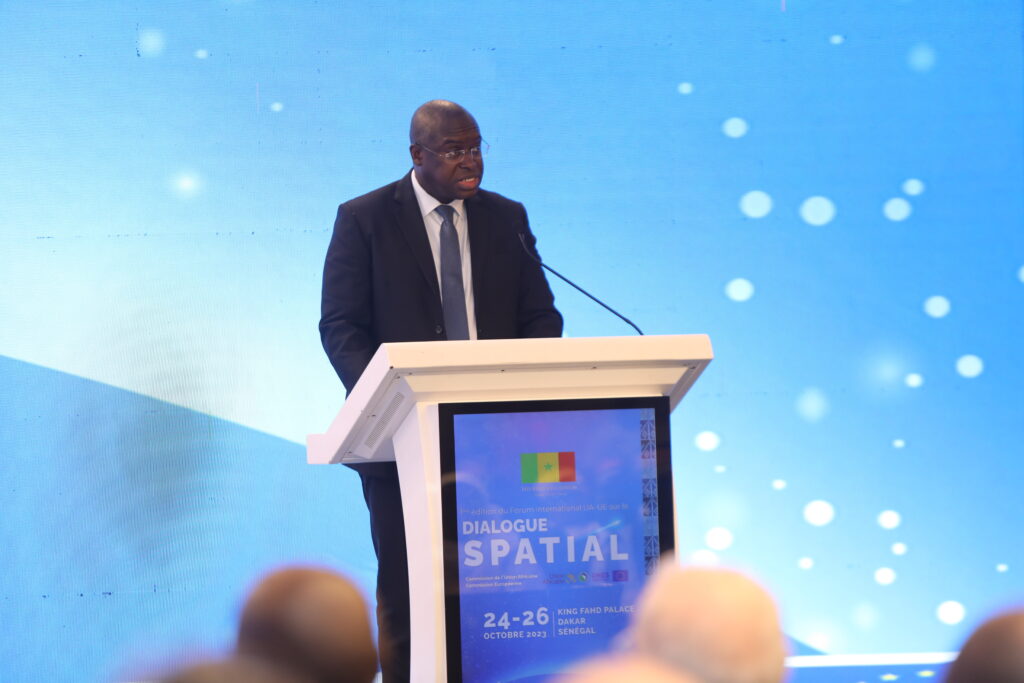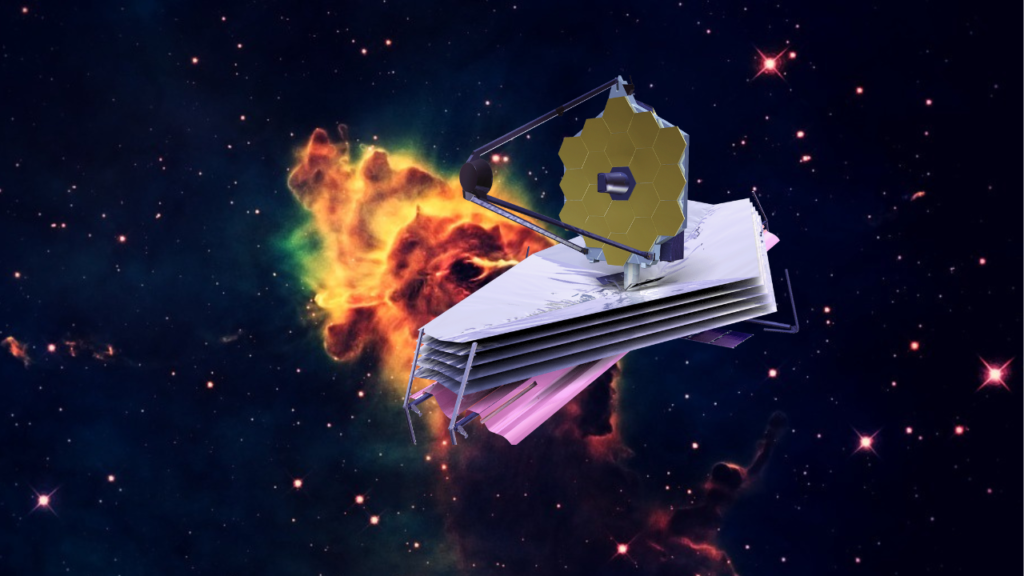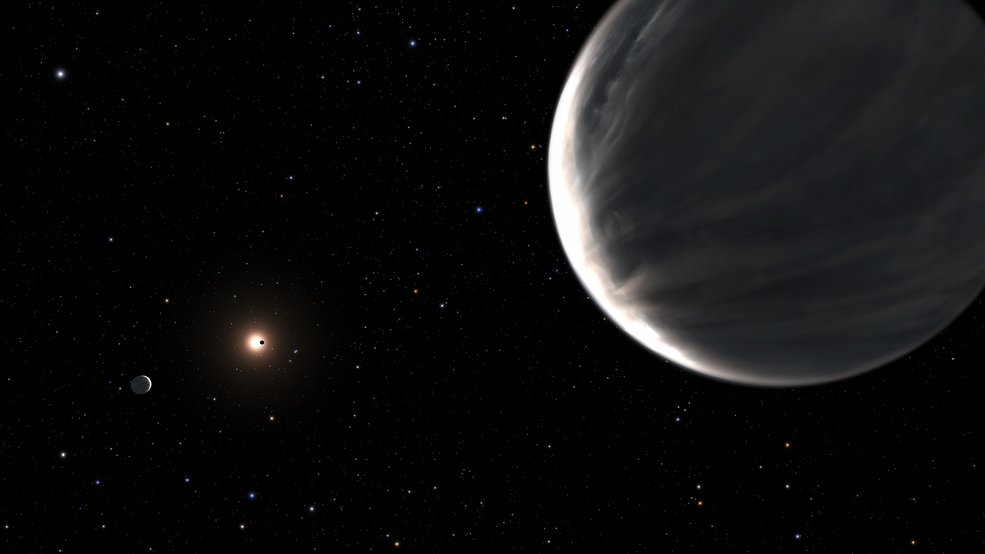On the sidelines of the ongoing AU-EU Space Dialogue at Dakar, Senegal, Dr Tidiane Ouattara, AUC Space Expert and the GMES & Africa Programme Coordinator, shared some crucial updates regarding the African Space Agency (AfSA) and various other space-related initiatives led by the AUC on the continent.
Road to AfSA’s Establishment
During their Twenty-Sixth Ordinary Session on 31 January 2016 in Addis Ababa, the African Union Heads of State and Government adopted the African Space Policy and Strategy as the first concrete step toward an integrated, prosperous, prosperous, and peaceful use of outer space. Subsequently, in 2017, the African Union approved the African Space Agency Act, paving the way for establishing the African Space Agency (AfSA). This legislation created a comprehensive framework for overseeing space initiatives across the continent and outlined a strategic plan for their implementation.
A continental body also became necessary as developing an adequate regional space capability requires a formal governance structure to advance a collective effort. This led to the inauguration of the African Space Agency in 2023.
Structural and Financial Implications of AfSA
In 2018, the Committee of Permanent Representatives of the African Union met to discuss the structural and financial implications of the African Space Agency. During the two-day conference, stakeholders engaged in thorough analyses, considering the intricate frameworks and funding mechanisms required to facilitate the agency’s mission and objectives.
As part of the AUC’s commitment to utilising the benefits of space-based technologies for the growth of its citizens, the commission has now approved its structure and financial policies to ensure and guarantee continuous development. Furthermore, the localised roadmap, finely tailored to Africa’s unique circumstances and aspirations, is expected to chart a strategic course forward and serve as a guiding light for the advancement of AfSA’s mission.
Staffing and Operationalisation of AfSA
On 25 January 2023, the African Union Commission, in partnership with the Egyptian Government, officially inaugurated the African Space Agency, marking the commencement of its operations. In line with AfSA’s strategic mission to serve as the central hub for fostering collaboration on space endeavours on the continent, the African Union has endorsed recruiting about 150 staff in 3 phases for a diverse array of technical and administrative positions to run the agency. These new additions to the AfSA team are poised to play a pivotal role in propelling the advancement and seamless execution of the agency’s ambitious space programmes.
Furthermore, AfSA has aligned its recruitment processes with the established guidelines set forth by the African Union Commission (AUC). This strategic alignment underlines AfSA’s unwavering commitment to adhering to best practices and maintaining transparency in its hiring procedures.
These recent developments highlight that AfSA is not only bolstering its internal capacity but also providing a gateway to valuable employment opportunities. This, in turn, promises to usher in a new era of empowerment and socio-economic growth, as it encourages the engagement of highly skilled individuals in a broad spectrum of space-related initiatives throughout the continent.
Updates on other AUC Space Programmes
Pan African University on Space Sciences
Following the decision of South Africa to host the Pan African University on Space Sciences (PASSUI), the fifth hub of Pan-African University (PAU) on behalf of the Southern Africa Region, AUC and the Government of South Africa are expected to finalise the essential agreement on hosting the institution in South Africa.
Therefore, finalising these agreements will pave the way for the smooth and successful launch of PASSUI, further enhancing the Southern Africa Region’s participation in the broader framework of the Pan-African University.
The Pan African University (PAU) is a network of postgraduate research programmes in five African regions. PAU was launched in 2011 by the African Union Commission to promote excellent research in key development fields and enhance the attractiveness and global competitiveness of African higher education and research.

GMES and Africa Programme
The Maputo Declaration of October 2006 underscored the importance of the EU-Africa partnership in reaffirming their dedication to extending European infrastructure and resources to the Africa, Caribbean, and Pacific (ACP) countries through the Copernicus program. This commitment laid the groundwork for initiating the GMES & Africa initiative, formally launched during the 2nd EU-Africa Summit in Lisbon, Portugal, on December 7, 2007.
In 2021, the AUC conducted baseline studies on the four-space segments and the space socio-economic benefits for establishing and operationalising the AfSA. The study aimed to facilitate the achievement of one of the fundamental aspirations of the African Space Policy and Strategy and to develop a sustainable and vibrant indigenous space industry that promotes and responds to Africa’s needs.
The pan-African programme aims to improve the capacity of African policymakers, planners, scientists, and private citizens to design, implement, and monitor national, regional and continental policies and to promote sustainable management of natural resources through the use of earth observation data and derived information. In addition, the programme was divided into two phases – the first phase of GMES and Africa, started in 2016 and ended in 2021. The second phase, which began in 2022, will end in 2025.
Since AfSA will be domiciled within Egypt’s Space City, GMES and Africa plans to relocate its coordination and operations office in co-location with AfSA’s headquarters to create a coherent and coordinated approach to achieving the agency’s goals and ensure GMES and Africa aligns and effectively contributes to the EO domain, while having access to the AfSA‘s expertise, leadership, and resources.
The decision to domicile the African Space Agency (AfSA) within Egypt’s Space City brings with it a pivotal shift in the landscape of space-related activities on the continent. One of the key changes resulting from this strategic move is the relocation of the GMES and Africa programme to AfSA’s headquarters. This relocation aims to establish a seamless and coordinated approach to achieving AfSA’s ambitious goals.
This integration will enable GMES and Africa to have direct access to AfSA’s vast expertise, leadership, and resources. It signifies a pivotal moment in the alignment of initiatives focused on space exploration and earth observation. This strategic move reflects AUC’s commitment to streamlining efforts, eliminating redundancy, and fostering a more efficient and effective strategy for space-related projects in Africa. In addition, it not only signifies the evolving landscape of space activities on the continent but also embodies a forward-thinking approach that prioritises collaboration, resource optimisation, and the pooling of expertise to drive the African space agenda forward.



